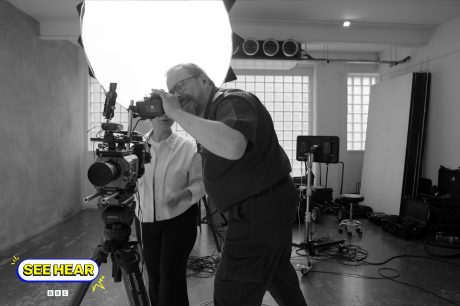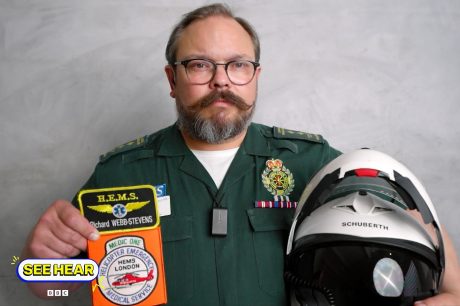Inspirational London Ambulance Service paramedic shares story on BBC See Hear
A paramedic who has spent more than 26 years caring for Londoners has shared his extraordinary story on BBC Two’s See Hear.

In the latest episode of the world’s longest-running television series for the deaf community, paramedic Richard Webb-Stevens reflects on key milestones in his career at London Ambulance Service.
The beautifully shot short film begins with Richard explaining how he built his career saving lives.
He says: “Every opportunity as a first responder on the front line is an opportunity where you can change someone’s future.”
Everything is possible
Richard was born with severe to profound hearing loss. This meant that when he tried to join the Army, he was turned down. But recruiters at London Ambulance Service gave him a chance.
He said: “I realised I’d have to work much harder. But that encouraged me. I realised that everything is possible.”
Richard went on to become the first deaf paramedic in the UK to work on an air ambulance. He now serves as a motorcycle paramedic.
He admits communication can be difficult during some emergencies – especially at noisy and chaotic scenes.But any challenges are overcome thanks to his determination, expertise, and teamwork.

Westminster Bridge terror attack
The biggest challenge he has faced was the Westminster Bridge terror attack in 2017. Four people were killed and more than 50 injured when a terrorist drove a car into pedestrians.
Richard was the first responder to arrive on the bridge.
He said: “The situation was extremely challenging and I had to use all my experience and training. I was working on the bridge for hours. I saw the first patient and, at the end, with a team, I helped to carry the last patient off the bridge to safety.”
Distinguished service
In 2022, Richard was awarded the Queen’s Ambulance Medal for distinguished service. As well as his dedication to patients, he has inspired and supported others in the deaf community to pursue roles in the emergency services.
He also features in this video explaining how deaf patients can call 999 using a British Sign Language (BSL) app. It instantly connects callers to a video call with an interpreter in case of a life-threatening emergency.

Follow us on social media: